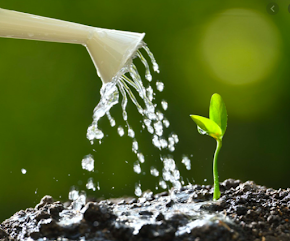From Watering Down to Challenging
We all know what happens when we don't water a plant enough - it doesn't grow. And we all know what happens when we water a plant too much - it doesn't grow. Seems simple stuff, right?
However, I wonder how many of us teachers will be honest enough to openly admit that we have at some point inadvertently hindered the growth of our students through ‘watering down’ our tasks and assessments for them in our attempts to give them access to the lesson content.
When it seems a plant is not growing as well as the rest, the impulsive reaction may be to give that plant even more water. This is a scenario we must do our upmost to avoid as practitioners when it comes to providing more tools, more support and an easier route to the LO for our non-English speakers.
A book well-worth a read is ‘Breaking down the Wall: Essential shift for English Learners’ Success’ by Calderon et al, which provides some interesting strategies to avoid over-watering those precious plants in your class, such as drawing upon the background knowledge of the students, giving them opportunities to use their native languages and the use of technology.
When reflecting upon my grueling teacher training days at Bangor University, the memory that sticks in my mind the most is a comment made a lecturer during a class: if something goes wrong in your class, don’t you dare point the finger at the students...you should always be pointing the finger back at yourself first’. A similar notion is put forward by Theoharis and O'Toole, who make the point that it is not non-English speakers who are deficient, the deficiency lies however in the materials provided and the techniques used in the classroom.
I am sure the next time you go to water your plants in the back garden, it will never be the same experience again...

Comments
Post a Comment